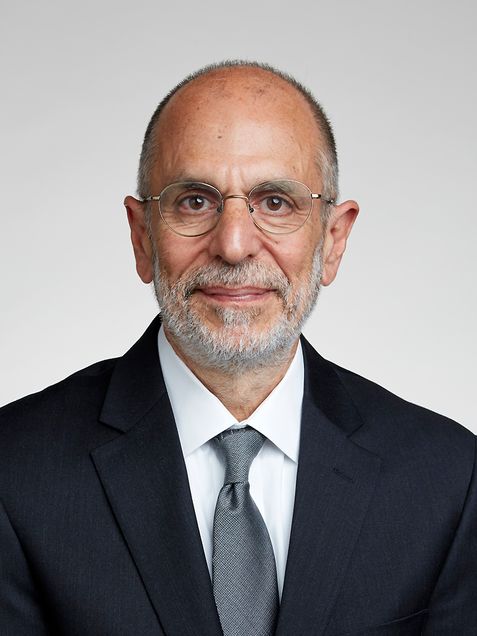2023 Saint-Gobain Materials Science Lecture

- December 1, 2023 at 4:00pm
Boston University, 8 Saint Mary’s Street, Room 906 - Host: Professor Lawrence Ziegler, Professor of Chemistry and MSE Associate Head
Sponsorsed by: Saint-Gobain Research North America
Robert J. Cava
Princeton University
Russell Wellman Moore Professor of Chemistry;
Associated Faculty Member of the Princeton Materials Institute;
Head Advisor of CavaLab, a Solid State Chemistry Research Group
Working at the Boundary Where Solid State Chemistry, Materials Physics, Mineralogy and Materials Science Meet
Abstract
Until recently, Solid State Chemists have often considered themselves to be the poor cousins of “real chemists,” even though they see the scientific world through chemical eyes. Also, chemists often view physicists as weirdos or otherwise as people to fear. Those things have never been the case for me, however, presumably due to my overwhelming interest in materials science and because I have been interested in both metals and rocks since my earliest days as a scientist. I have always been scientifically rich and view materials science as being the source of great fun. In this talk I will present some of the materials that we have discovered that illustrate some simple ideas in materials science. The materials are typically non-molecular solids, ranging from those displaying frustrated magnetism, to those stabilized at pressures that geologists would consider to be laughably low, to those that my colleagues in engineering are using to make qubits for quantum computers.
Robert J. Cava Bio
- Robert J. Cava is Russell Wellman Moore Professor of Chemistry as well as Associated Faculty Member of the Materials Institute at Princeton University. Cava is also the namesake and Head Advisor for the Solid State Chemistry Research Group Cava Labs at Princeton, which has been publishing research on the topic since 1998.
- Prior to joining Princeton in 1996, he was a Distinguished Member of Technical Staff in Bell Laboratories from 1985-1996. He received his PhD in Ceramics from the Massachusetts Institute of Technology in 1978. He has over 500 publications and 15 US patents with an H Index of 160 on Google Scholar.
- Cava is a member of the National Academy of Sciences and the Royal Society. He is a Fellow of the American Physical Society and American Institute of Physics.
- Cava received the Bernd T. Matthias Prize in 1996 for his work on new superconducting materials. He was awarded the Humboldt Research Award and John J. Carty Award in 2011, the Linus Pauling Award and James C. McGroddy Prize in 2012, and received a Doctor Honoris Causa degree from Gdańsk University of Technology in 2014. Most recently, Cava also was awarded the David Adler Lectureship Award in the Field of Materials Physics in 2021.
- In addition to the various honors he’s received in his field of scientific study, Cava has also made an impact in the classroom. Princeton University awarded him the Excellence in Teaching Award in 2002. The Princeton Engineering Council has since also awarded him an Excellence in Teaching in 2003, 2006, and 2007. He’s also received a teaching award from Princeton University’s Phi Beta Kappa Society in 2007.
- Cava describes himself as a dedicated fan of the New York Yankees, a passionate astronomer, and amateur brewer.
Introductory Speaker Dr. Charles Bateman
Charlie Bateman is currently the Senior External Relations Manager at Saint-Gobain Research North America. His activities range from managing relationships with academic partners through to finding materials and processing technologies of interest to Saint-Gobain in North America.
Of particular relevance are solutions related to what Saint-Gobain has identified as the Global Grand Challenges of the circular economy, electrification, connected objects & IOT, reduced carbon content solutions, human well-being & healthcare, and security & safety.
Charlie has a PhD in materials science and has spent much of his career at Saint-Gobain leading a team responsible for materials characterization and engineering. He is passionate about identifying the relationships between materials chemistry and processing to understand and improve product performance. He has worked on everything from building products to advanced ceramics for harsh environments and specialty polymers for demanding applications.
Materials Design for Deconstruction
In this opening speech the concept of materials design for deconstruction will be explored. The need for this new approach for our relationship with materials will be examined, along with the relationship between economic development and materials complexity. Finally, a number of ideas as to how we can redefine our relationship with materials, whilst working towards both economic growth and carbon neutrality will be presented.